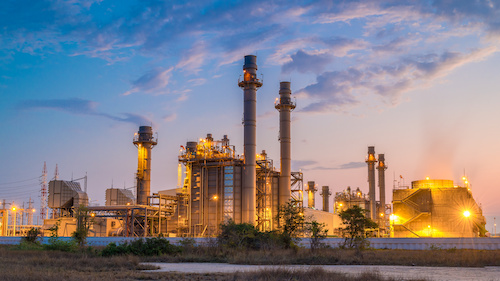The Industrial Fuel Switching (IFS) Competition, up to £55 million, forms part of BEIS’ £1 billion Net Zero Innovation Portfolio (NZIP), which aims to accelerate the commercialisation of innovative clean energy technologies and processes through the 2020s and 2030s. Switching industry to lower carbon fuels will be critical for meeting the UK’s legally binding commitment to achieve Net Zero by 2050. The IFS Competition aims to support the development of fuel switching and fuel switch enabling technologies for UK industry. This includes fuel switches from high carbon fuels to hydrogen, electricity, biomass, and other low carbon fuels. It will be open to all industrial sectors and fuel switching technology developers.
Funding will be available for:
1. Fuel switch and fuel switch enabling technologies for hydrogen
2. Fuel switch and fuel switch enabling technologies for electrification
3. Fuel switch and fuel switch enabling technologies for biomass, and/or wastes, and/or other net zero compatible fuels
The competition will fund solutions which are at Technology Readiness Level (TRL) 4 to 7 at the start of the project and are seeking to reaching at least TRL 7 at the end of the demonstration project.
The projects will be funded through a Small Business Research Initiative (SBRI) precommercial procurement process, providing 100% funding to applicants. Consequently, match-funding and in-kind contributions should not form part of an application or project.
This is Phase 2 of a multi-phase project, but Phase 2 is open to all applicants, whether or not they have taken part in Phase 1.
The budget for each demonstration project will be between a typical minimum of £1 million and a fixed maximum of £6 million. The total budget allocated for Phase 2 will be up to £49.4 million.
Scope
The Competition will fund industrial fuel switch and industrial fuel switch enabling solutions, at TRL 4 to 7 at the start of the project. It is being delivered over two phases; Phase 1 (total budget up to £5.6m) has supported 21 projects to scope and develop feasible demonstration projects that could be run in Phase 2. Phase 2 (total budget up to £49.4m) will be an open competition, supporting the most promising proposals for physical demonstration of the industrial fuel switching or fuel switch enabling solution, whether or not they have come through Phase 1. Demonstrations can take place onsite or at suitable test facilities that simulate industry conditions. There is an expectation that demonstrations should take place in the UK, unless it can be proven that this is not possible. In all cases, by financial value, over 50% of the project funded should be conducted in the UK.
Demonstration projects should either demonstrate an entire fuel switching solution, key components of a system, a prototype in a relevant environment, or further develop and demonstrate the physical design of new solutions to enable an industrial process to be switched from using high to low carbon fuels.
Applicants will be required to consider the environmental, health and safety impacts as well as planning requirements of their solution and the regulations which must be adhered to.
Some examples of projects for each area:
1: Hydrogen – Industrial fuel switch to hydrogen, or technology to enable this
Examples (non-exhaustive) may include:
- Develop and test innovative industrial hydrogen appliances (e.g., hydrogen boilers, kilns, furnaces, CHP, dryers).
- Direct reduction with hydrogen (steel manufacturing)
- Develop and test hydrogen fuel switch enabling technologies for industrial sites, such as storage solutions and fuel delivery/distribution and/or control systems.
2: Electrification – Industrial fuel switch to electricity (grid or local renewable), or technology to enable this.
Examples (non-exhaustive) may include:
- Develop and test industrial electric technologies (e.g., electric boilers, kilns, furnaces)
- Develop and test microwave, infrared or induction heating systems.
- Storage systems or other infrastructure that supports fuel switching to renewable electricity.
- Develop and trial innovative industrial heat pumps.
3: Biomass, Waste, Other – Industrial fuel switch to biomass or waste fuel, or technology to enable this: or fuel switch to another fuel not listed, which must be compatible with Net Zero, or the technology to enable this.
Examples (non-exhaustive) may include:
- Direct reduction using sustainably sourced biomass/waste materials.
- Sustainably sourced biomass or waste combustion, compatible with CCUS in future (where other low carbon options are not viable).
- Use of other fuels such as ammonia or e-fuels to power industrial processes.
Further details on the scope of each area are given in the guidance document.
Eligibility
Projects must be led by a UK-based company (i.e. registered with Companies House), and over 50% by financial value of the project funded must be conducted in the UK. Projects can work with international partners, but they must be led by a UK-based company.
Multiple applications: A lead organisation may enter up to a maximum of three applications as the lead, across all Lots (hydrogen/electrification/biomass and others). For example, this could be three applications under the same Lot, or three applications spread across the different Lots. Additionally, for a particular technology/solution being developed, only one application involving the provider/original equipment manufacturer will be allowed in any Lot.
Briefing events and further information
BEIS have publish a launch event video with more details about the competition (see below) – see also the event presentation in the Documents section on the publication page.
If you have any questions on the process or eligibility criteria, please raise them using this form by 2pm GMT, 4 November 2022. Questions submitted after this date may not be answered.
We are holding an online question and answer session on 10 October 2022 at 2pm – click here to book a place. We recommend watching the launch video prior to joining that event.


